The decision by Nairobi Governor Johnson Sakaja to introduce Green Nairobi Limited as the city’s new garbage collector has raised serious concerns about transparency and possible corruption.
The move, which was supposedly meant to eliminate waste management cartels, has instead created a new controversy, with many questioning the process behind the company’s formation and its ownership.
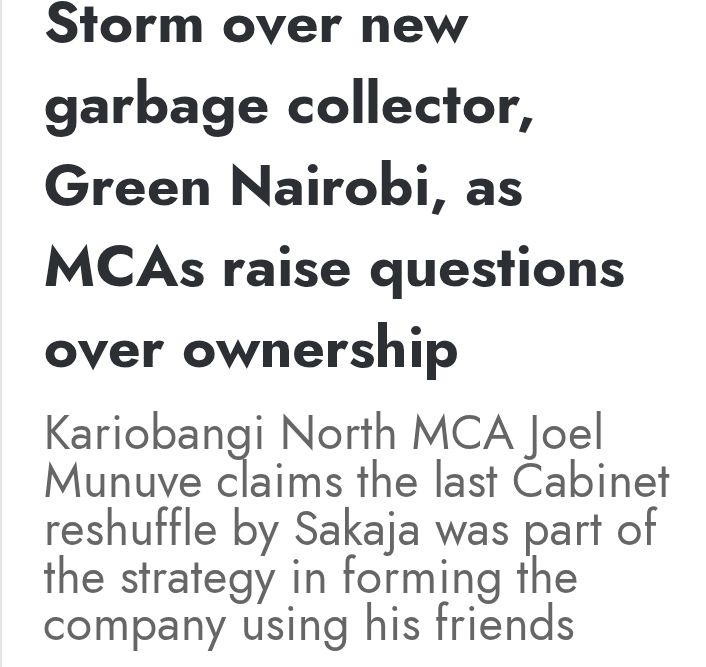
Nairobi MCAs have openly criticized Sakaja’s administration, accusing him of sidelining the County Assembly and the public in making this decision. Kariobangi North MCA Joel Munuve has alleged that Sakaja’s recent Cabinet reshuffle was not about improving service delivery but was instead a well-planned strategy to position his close associates in key positions within the county government.
These officials, he claims, were involved in the creation of Green Nairobi Limited, which now stands to benefit from lucrative garbage collection contracts.
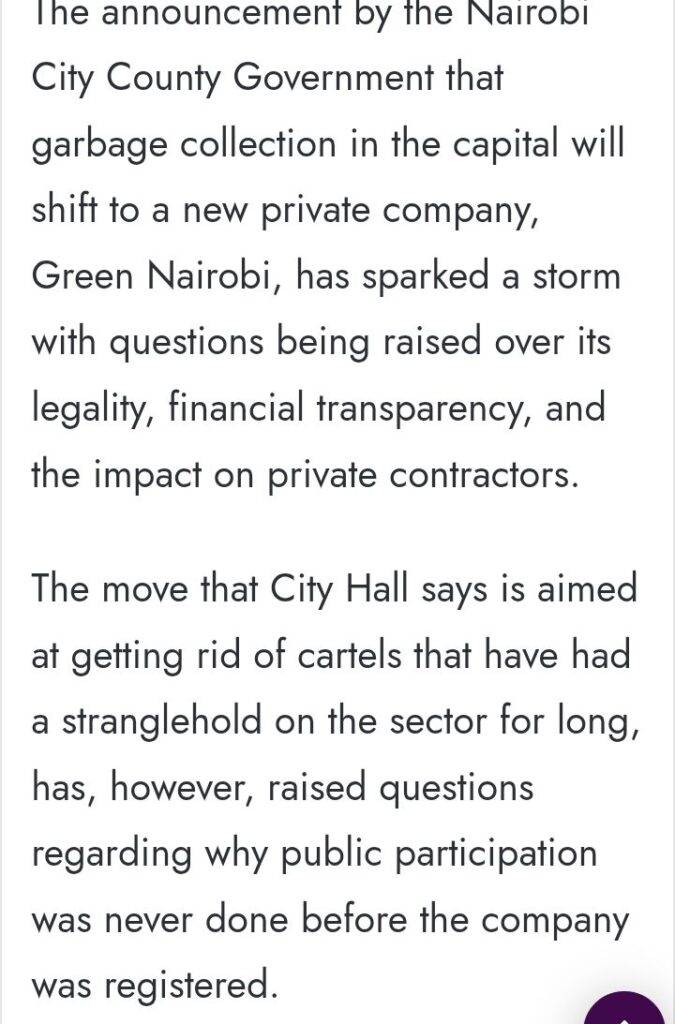
The lack of public participation in selecting this company is a major concern, as Nairobi residents were never consulted despite being the primary beneficiaries of garbage collection services.
Further complicating the situation is the fact that the company’s ownership is tied to top county officials. Reports indicate that the company’s shares are distributed among current county executives, including County Ministers Maureen Njeri and Charles Kerich, County Secretary Godfrey Akumali, Chief Officer for Environment Geoffrey Mosiria, and Chief Officer for Finance Asha Abdi.
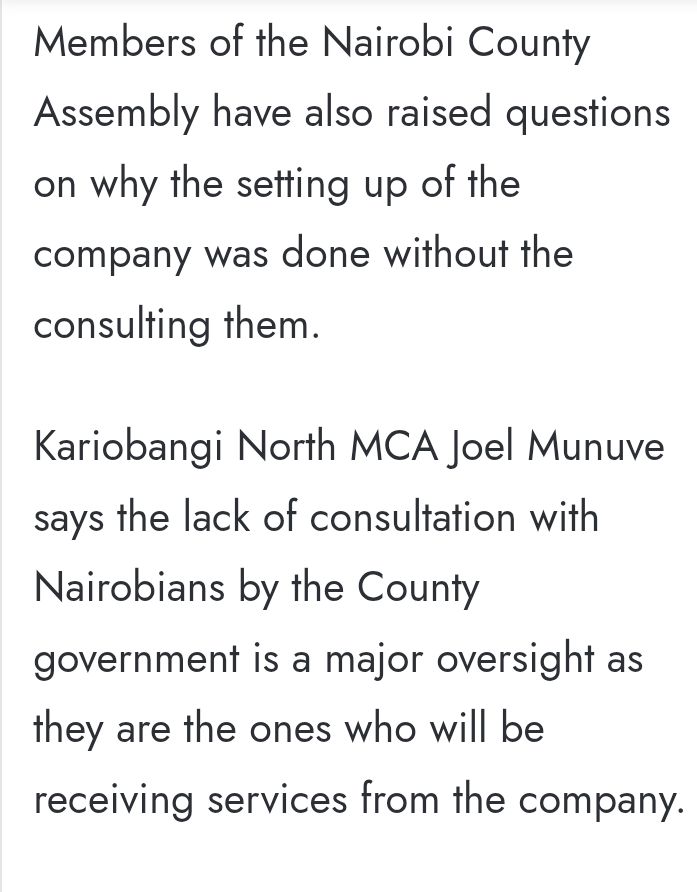
This raises serious ethical and legal concerns about potential conflicts of interest. If the officials who awarded the contract to Green Nairobi Limited are also part of its ownership, then it becomes clear that Sakaja’s administration has simply replaced old cartels with a new, government-backed monopoly.
This is not the first time that Sakaja’s administration has been accused of questionable dealings. The Auditor General has previously flagged massive financial irregularities in garbage collection payments, with some contractors allegedly being overpaid for work that was never done.
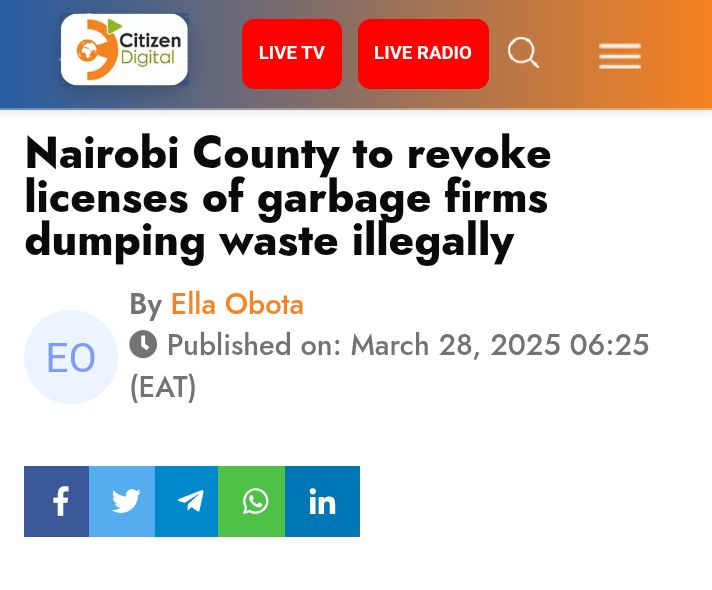
Nairobi’s waste management system has long been plagued by corruption, and instead of solving the problem, Sakaja appears to be making it worse.
The introduction of Green Nairobi Limited, without clear accountability measures, suggests that Nairobi’s garbage problem is now being used as a money-making opportunity for those close to the governor.
The decision to introduce Green Nairobi Limited also raises questions about its capacity and efficiency. Nairobi’s garbage problem has been growing worse under Sakaja’s leadership, with uncollected waste piling up in residential areas and business districts.
Recent incidents, such as the county government dumping garbage outside Kenya Power headquarters in what appeared to be a protest against unpaid bills, have only served to highlight the incompetence of Sakaja’s administration.
If the county government cannot even manage garbage collection properly, how can residents trust that Green Nairobi Limited will perform any better?
The failure to consult the public and the County Assembly before awarding this contract is a clear sign of the lack of transparency in Sakaja’s leadership.
Nairobians deserve to know how decisions that affect their daily lives are made, especially when they involve taxpayer money.
By keeping the public in the dark, Sakaja has only fueled suspicions that Green Nairobi Limited was created to benefit a few well-connected individuals at the expense of ordinary residents.
Sakaja’s leadership in Nairobi has been marked by one scandal after another. From the chaotic matatu CBD ban that he later reversed, to his inability to control Nairobi’s growing garbage crisis, it is becoming increasingly clear that he is failing in his responsibilities as governor.
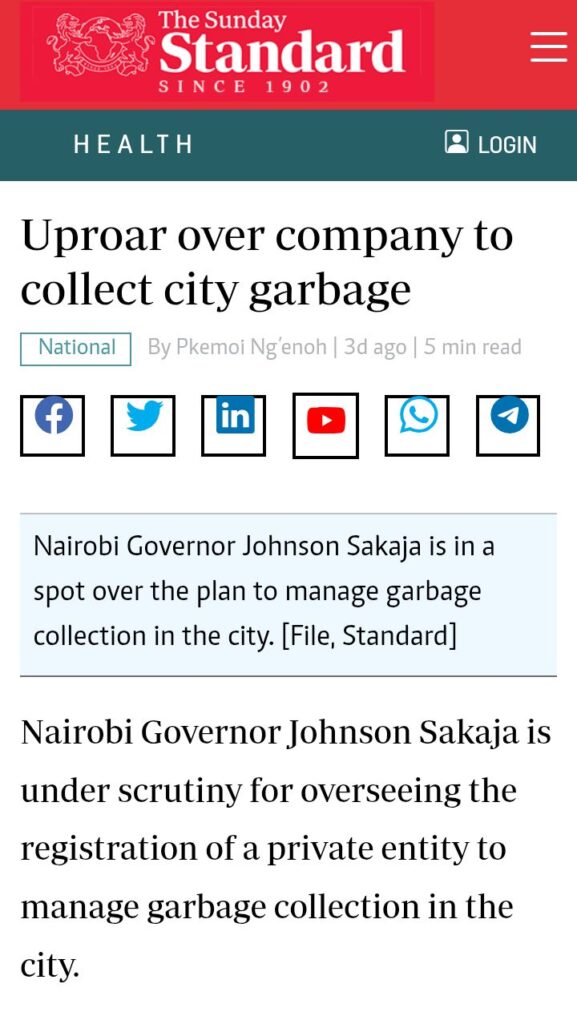
His administration has been more focused on PR stunts and political games rather than delivering real solutions to Nairobi’s problems. The introduction of Green Nairobi Limited is just the latest example of this, and unless urgent action is taken, it will be Nairobi residents who suffer the consequences of yet another failed government project.
If Sakaja truly wanted to solve the garbage crisis, he would have prioritized reforms in waste management rather than secretly creating a new company to take over contracts. He would have ensured that the process was open, competitive, and accountable.
Instead, his administration has chosen secrecy and favoritism, raising valid concerns about corruption. Nairobians must demand answers and accountability before the city’s garbage crisis becomes even worse under his watch.







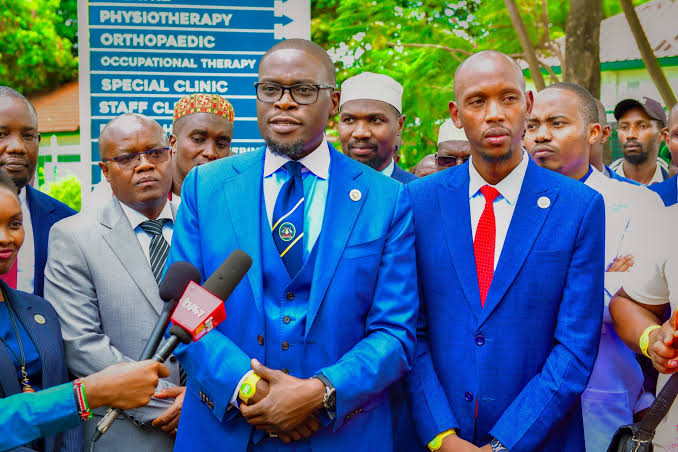













Add Comment